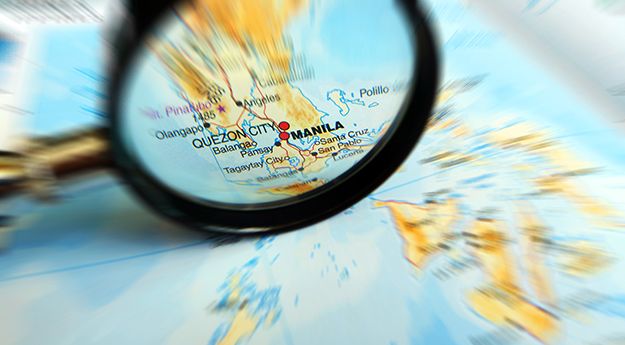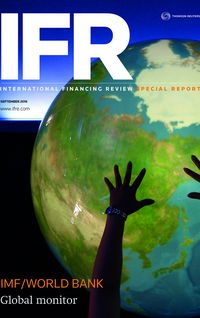Despite a backdrop of civil unrest, markets in the Philippines are proving remarkably buoyant under the country’s colourful new president.
The Philippines under its recently elected president Rodrigo Duterte displays some uneasy contradictions. Against the backdrop of extra-judicial killing which has delivered more than 3,000 deaths since his inauguration, and a bomb blast last month that prompted him to declare a national state of lawlessness, credit and equity markets seem impervious. Can this last?
Perhaps Rodrigo Duterte is the most colourful chief executive of any currently sitting government. He won power in the cluttered Philippines presidential elections in May on a platform that had at its core eradicating crime in the country by whatever means it was to take, as well as conducting the campaign to the accompaniment of a litany of profane statements.
The Philippines has not cooled from its choice – Duterte has an approval rating of 90%, one of the highest in history, globally. He won 39% of the popular vote, a simple majority but one that was viewed in the country as a landslide victory.
Such a cult-like following might have been thought to be anathema to capital markets which had performed as standouts in Asia under the presidency of Benigno Aquino, a studious man engaged in building on the legacy of his mother Corazon, who led the Philippines out of the dictatorship of Ferdinand Marcos in the mid-1980s.
Aquino might have been rather dull and too close to the Philippines’ oligarchs for comfort. But he delivered one of Asia’s highest annual GDP growth rates during his six-year tenure and demolished – symbolically, if not in actual fact – the country’s cliched reputation as the “sick man of Asia”.
Something different
Despite his enviable track record in delivering economic growth, the Filipinos wanted something different, and they got it in the shape of Rodrigo Duterte. They might well have had reason to slap themselves on the back after his victory in May and following his swearing-in on the last day of June. The Philippines peso and the country’s equity markets put on a stellar performance in the run-up to his victory and have continued the bull trend in the two months-odd since.
Credit also rallied, with five-year Philippines dollar default protection pulling in from around 140bp in January to the high 80s last month, where it seems impervious to negative headline input. Equities have been less benevolent as the death toll from Duterte’s war on drugs has risen to equate to around 50 fresh killings per day.
Although the Philippines stock market experienced a rally to propel local stocks to the most expensive level in price earnings ratio terms around the Duterte victory, most of those gains have been given back in recent weeks. Over a 10 day-odd period in early September, around US$350m-equivalent was pulled out of Philippines stocks, eventuating in the local stock market registering the worst performance in the Asian stock market basket, falling 2.3% while other regional bourses were rising.
“Duterte’s anti-drugs campaign is transforming the streets, principally in Metro Manila, into urban killing fields. No one knows when the campaign in which there is the free participation of the police and vigilante gangs will end. Add to that Duterte’s extraordinarily brazen turn of phrase and isolationist rhetoric plus a national state of emergency and you have a recipe that is beginning to unnerve investors,” said the head of DCM at a European bank in Singapore.
A bomb blast in early September in Davao City, which is Duterte’s fiefdom – he served as mayor there for over 20 years until his presidential victory in May – prompted his imposition of a national state of “lawless violence”. This state has been compared to the martial law declared by Marcos in 1972 which lasted for nine years, during which thousands of Filipinos were tortured and murdered.
The difference between Duterte’s new regime, which is set to continue until “safety is restored”, and martial law is simply that there is no curfew nor the suspension of habeus corpus.
Nevertheless, Philippines stocks are the most expensive in Asia in price-earnings ratio terms, trading at a premium just north of 32% to the MSCI Asia Pacific index. Meanwhile, 10-year Philippines government bonds sit at 3.40% having rallied almost 70bp this year.
Progress required
“Now, despite the rhetoric, Duterte has to start delivering in terms of the material economic indicators. The concept was during his campaign that he would invoke economic continuity with Aquino’s policies. There is always the buffer of contributions from overseas foreign workers, which helped produce an average annual growth rate of around 6% during the six-year Aquino administration, said a Hong Kong-based fund manager.
“That will continue, but onshore organic economic growth will be expected as a trade-off with the draconian crime campaign. If the growth isn’t an eye-opener, then markets are likely to retreat further.”
The residual optimism among those who remain bulls of the Philippines capital markets is based on the central plank of Duterte’s economic policy, which is to reinvigorate the economy via infrastructure spending.
The Philippines’ creaking infrastructure is desperately in need of a shot in the arm, and the hope is that by judicious use of the public-private business model, Duterte can attract foreign direct investment in infrastructure in order to propel the country’s economic growth.
“So far, credit has been immune to Mr. Duterte’s lapses on the international public stage. It might not help to call Barak Obama the ‘son of a whore’ and snub the head of the United Nations, as Mr. Duterte recently did, but many market players see all this posturing as an add-on. What they want is economic growth and a sense of momentum which will transform civil society. As long as that hope is there, Philippines credit will hold up,” said Jake Gearhart, head of DCM at Deutsche Bank in Singapore.
To see the digital version of this special report, please click here
To purchase printed copies or a PDF of this report, please email gloria.balbastro@tr.com



